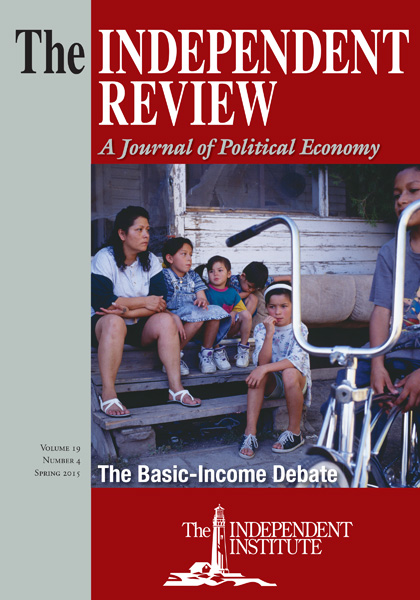For the U.S. government to provide a basic-income guarantee of $10,000 to every American citizen, federal spending would need to rise by 30 percent and the size of the welfare bureaucracy would need to double. The politico-economic case against a government-guaranteed basic income is strong, but the moral argument against it is even stronger.
David R. Henderson is a Research Fellow at the Independent Institute, an Associate Professor of Economics at the Naval Postgraduate School, and a Research Fellow at the Hoover Institution at Stanford University.
EconomyEntitlements and WelfareFederal Budget PolicyGovernment and PoliticsPublic ChoiceSocial SecurityTaxesTaxes and Budget
| Other Independent Review articles by David R. Henderson | ||
| Summer 2018 | Why We Fight: A Study of U.S. Government War-Making Propaganda | |
| Fall 2016 | An Economist’s Case for a Noninterventionist Foreign Policy | |
| Winter 2015/16 | The Economy in 2065: Predictions and Cautions | |
| [View All (8)] | ||










